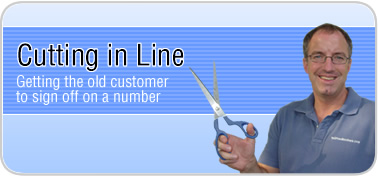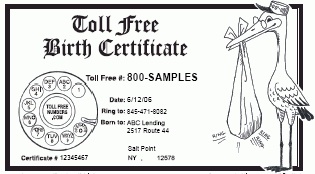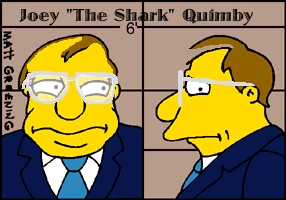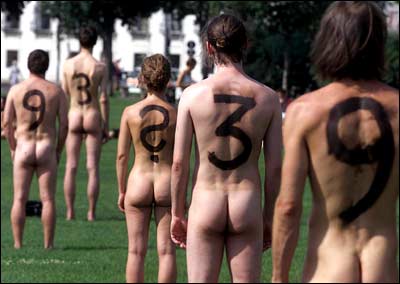Recently, there have been renewed calls for an “open market” for toll free numbers, but that may be a misnomer. We assert that we already have an "open market" for toll-free numbers, just not for naked ones.
Can you imagine the FCC objecting to the sale of 1-800-Flowers? It would be ludicrous, for sure, but why?
1-800-Flowers is not simply the toll-free number 800-356-9377, fresh out of the spare pool; it’s a genuine program, service, and business that is bundled in with a variety of other rights. The FCC doesn’t oversee the sale of businesses, domains, or intellectual property; just toll-free numbers when they are deemed to be a public resource-- and clearly, this company's highly incontestable subscription rights trump any illusion of this toll free number as a mere public resource.
Some might argue that there’s no real difference between "brokering" a toll free number and selling an program entity build upon a toll-free number, but there is; 1-800-Flowers and countless others have added value to their numbers.
We already have an “open market” for numbers with added value-- We just need to believe.
The conversion and sale of "naked" numbers -- those with no added value -- destined for the spare pool and the unauthorized seizures of sparing numbers through the Help Desk are abominations. These bad actions directly impact the spare pool.
Or, when our Industry's bad boy and his copy-cat rivals “cut in line” and routinely seize numbers through the SMS/800 Help Desk -- often minutes before they are slated to go spare -- are they not engaged in illegal acts that deprives the development community and the public from, "first come, first serve," allocation?

Don't be fooled by what's advertised; that the "old customers" are signing off. We believe there is strong evidence that a vast majority of these Help Desk seizures are unauthorized hijackings-- "unauthorized," because the rightful subscribers have not given their consent for this action; "hijackings," because these illegal acts deprive the public of a shot at these numbers.
In contrast, the sale of 1-800-Flowers or other such bundled assets would result in an orderly transfer of "customer of record" and have no impact on the spare pool, as these numbers were already allocated on a, "first come, first serve" basis. For numbers with added value, we assert, we already have an “open market.”
The Real Value is Added Value
If you’re wondering how much value to add, let’s call it the "no doubt," standard. Adding “free shipping” to a naked toll free number like 888-369-6000 is a laughable defense if you’re selling them on ebay.
 Adding a goofy, “birth certificate” to seized numbers won't erase the the fact that they may have been usurped from public competition in obvious violation of the FCC mandate.
Adding a goofy, “birth certificate” to seized numbers won't erase the the fact that they may have been usurped from public competition in obvious violation of the FCC mandate.
Yet, creating a program entity by adding a domain, website, IVR services for customers to call, and certainly intellectual property rights adds real value -- no doubt. You, then, are not selling numbers, but a bundle of other rights in which the free release and transfer of toll-free numbers is included.
In addition, it is essential to recognize that the vanity value of a toll free number is not intrinsic in the number itself, but created and overlaid upon the subscription by the developer. Therefore, even if the underlying subscription is legally defined as a "public resource," the valuable part -- the vanity component; the part that can be developed and sold -- is not.
Unlike Internet domains where words are intrinsic in the domain address, vanity numbers are mnemonic overlays for the convenient recall of the number. The vanity message does not appear in the toll-free number on its phone bill and, generally, there is more than one potential mnemonic overlay.
Indeed, the very core of vanity numbers value was threatened by the rapid adoption of Blackberry phones over the last decade, which re-mapped the letters on many phones. Thankfully, the emergence of the iPhone reversed this trend! Had the value been intrinsic in the numbers themselves, how could anything external be a threat?
To further illustrate this fact, let's go through a real world example of a toll free number that was unscathed as the vanity overlay was ripped away.
Ring Central, in their dispute with the infamous Bill Quimby and his web site TollFreeNumbers.com, registered the toll free version of their "Ring Central" trademark 1800RingCentral, and then asserted the matter in federal court (Federal Complaint, section 17).
Mr. Quimby had registered two domains, 1800RingCentral.com and 800RingCentral.com, and was using the toll free number 1-800-Ring-Central to deceptively divert callers to his TollFreeNumbers.com and his various other services, according to the complaint.
In their April, 2010 ruling the court held that Mr. Quimby was engaged in cybersquatting, ripped away the domains that map to 1800RingCentral, enjoined him from ever using the vanity overlay of 1-800-Ring-Central -- and slapped him with $432,861.29 in damages. Untouched and unassailable, however, was the toll free number itself, 800-746-4236, which is still very much in the control of Mr. Quimby under RespOrg ID, QZA99. Look it up.
Intrinsically based? We and our value are one? No way. The number was simply a vehicle to free-ride off the Ring Central trademark, yet did not contain even a fragment of the trademark itself and could not be enjoined.
Such was the outcome of other legal challenges to the toll-free numbers that map to 1-800-Mercedes, 1-800-H0iday, and 1-800-Fl0wers. In these cases, the use of the phone number within the same class of goods and services -- without the vanity overlay -- was ruled to be exempt from trademark infringement.
From courts ruling in "Mercedes-Benz, Inc. vs. Donald Bloom and MBZ Communications:"
"We thus conclude that the licensing of a toll-free telephone number, without more, is not a "use" within the meaning of the Lanham Act, even where one possible alphanumeric translation of such number might spell-out a protected mark.
This conclusion is bolstered by those cases granting injunctive relief in favor of mark holders and against those who possess vanity phone numbers corresponding to protected marks. In those cases, the courts have fashioned limited remedies, enjoining only the advertisement of the alphanumeric translation of the number which incorporates the protected mark but not the use of the number generally. See, e.g., Kelley Blue Book v. Car-Smarts, Inc., 802 F. Supp. 278, 294 (C.D. Cal. 1992) (enjoining defendants from using the phrase "blue book" in connection with advertising or distributing automobile pricing information but not enjoining the use of the 800 telephone number), 294 ("Injunctive relief in cases involving spelled-out telephone numbers may be narrowly fashioned.
Thus in one case where defendant's spelled-out telephone number . . . created a likelihood of confusion with plaintiff's name, the Court did not prohibit defendant from using the telephone number, but rather enjoined the defendant from advertising."); Murrin v. Midco Communications, Inc., 726 F. Supp. 1195, 1201 (D. Minn. 1989) (enjoining defendant from advertising the phone number but otherwise allowing use of number). In accord with these cases, we conclude that the district court did not err in granting summary judgment in favor of MBZ." See full ruling here.
Finally, let's look at 1-800-Collect which incorporates several phone numbers to support the program. The program uses not only the primary spelling, 800-265-5328, but common "mis-dials" like 800-205-5327 and 800-225-5328, which translate to 1-800-C0llect (with the zero) and 1-800-Call-Collect.
All of these toll-free numbers are essential to support 1-800-Collect, but the actual value resides in the registered trademark and the services overlaid upon the numbers. Were Verizon to sell 1-800-Collect, they would be selling the overlay, trademark, and program entity for cash value. The rights to the various toll-free subscriptions would simply be bundled in and conveyed like license plates on a used car; then remapped to new owner.
We believe the evidence is compelling; that the vanity value of a toll-free number does not reside in the toll free number itself, but in the mnemonic overlay created and deployed by the user. Therefore, any value legally created remains the private property of the user, regardless of whether the underlying toll free number is assumed or deemed a "public resource."
We believe it more correct to state that the toll free addressing system is a public resource, along with unsubscribed and abandoned numbers; those in, and destine for, the spare pool. Subscriber rights -- absent any abuse by the user -- should trump the illusion that working numbers are a mere public resource, and must reasonably endure any act of 3rd party negligence, conversion, or fraud.
FCC Oversight as Benefit
The FCC rules have had obvious benefits; we've had millions of available toll free numbers in the spare pool over the years. Yet, we assert, no one has ever been deprived of building a business around a toll-free number and selling that. With that as a backdrop, we have all the "open market" we need.
Once you understand that the FCC rules are there to protect the toll free numbers as a public resource and not to restrain business development, then the 95-155 regulations seem far more sensible.
Largely thanks to FCC oversight and other forces, toll free numbers are held in not-for-profit database, the SMS/800. What we enjoy today is the best of all worlds -- the right to develop toll free numbers which remain freely available! In contrast, the for-profit domain registry charges five times as much for maintenance -- $8.25/ year for .com domains vs. $1.26/year for toll free numbers which includes a 24/7 Help Desk. What we have today works amazingly well.
Toll free numbers users are also free from the scourge of self-serving registrars who seize domains as they expire and auction them off the reassignment through SnapNames, NameJet, and Pool to the highest bidder, as the FCC requires that carriers serve as public trustees and "spare" aged numbers at the end of their 4-month term.
Initially, Internet domains were also freely available on a, “first come, first serve basis,” but then registrars quickly discovered there is far more profit in auctioning off the right to renewal, then in the domain renewals themselves. There was no "grown-up" around to stop this practice.
 We must, however, rid the toll-free industry of those bad actors who routinely engage in Help Desk hijackings, spare pool brokering, or port phising. These bad actors are the scourge of our industry, and of our time.
We must, however, rid the toll-free industry of those bad actors who routinely engage in Help Desk hijackings, spare pool brokering, or port phising. These bad actors are the scourge of our industry, and of our time.
In the meantime, it is unwise to involve the carrier staff in your business transactions. Most are administrators with no legal training and haven't a clue about Toll Free Agency, so they won't know the difference between bad actors and legal transactions. When they hear money is involved, they often assume the worse; that you are "brokering," and those involved are somehow outlaws.
The best approach is to simply a have trusted 3rd party like Vanity International handle the transfers before any carriers get involved. Or, if you must, simply have the carriers transfer the numbers, but do not involve them in your business deals -- and by no means give them any say or approvals. Their only role should be to transfer the, "customer of records," so that the future billing is correct.
Go Naked?
It would take an act of Congress to declare formal property rights for toll-free numbers, but here's the rub; why would that ever happen without an unholy alliance with the federal government to raise billions off the backs of toll-free subscribers?
Those calling for an “open market” of naked numbers -- legal brokering of toll free numbers without any added value -- should consider the crisis we would face as speculators would surely "run the bank" on toll free numbers. Unlike Internet domains which can always become longer and less sensible word combinations without any impact on the domain system or its stakeholders, toll-free numbers are currently constrained to 7 digits and can quickly run out. There are major expenses involved in opening new codes.
If carriers are compelled to spend millions opening new codes, you can be sure they, too, will be looking to users to pay much higher fees on toll free numbers to justify the added cost. Sure; as existing toll-free users we may all be grandfathered in, but we will no longer enjoy the $1.20 per year it costs to maintain a toll-free number in the SMS/800 database.
 In summary, we already have an “open market” for numbers with value added-- we just need to believe this. Any serious attempts to extend this privilege to naked numbers would vastly increase speculation, brokering, and ultimately lead to a massive tax assessed on all toll free users. For what benefit? We can already sell value-added numbers. Do we really need an "open market" for naked ones?
In summary, we already have an “open market” for numbers with value added-- we just need to believe this. Any serious attempts to extend this privilege to naked numbers would vastly increase speculation, brokering, and ultimately lead to a massive tax assessed on all toll free users. For what benefit? We can already sell value-added numbers. Do we really need an "open market" for naked ones?
Let’s just keep our cloths on here and leave naked enough alone.